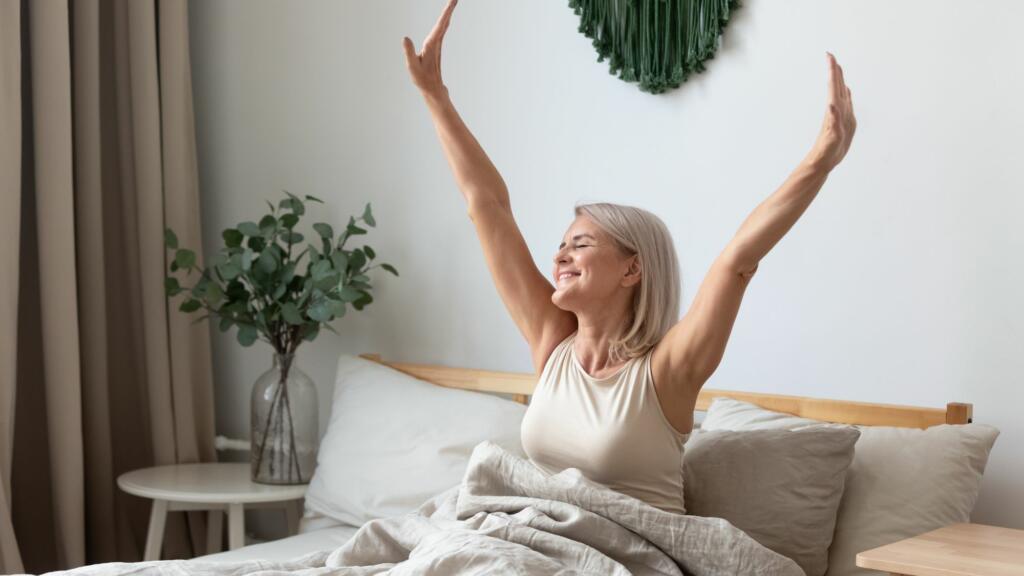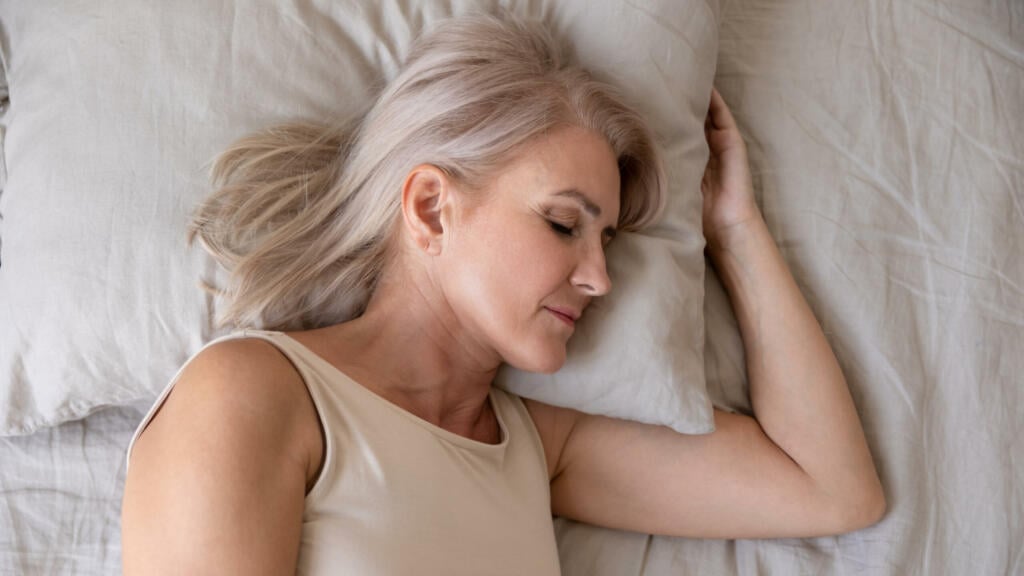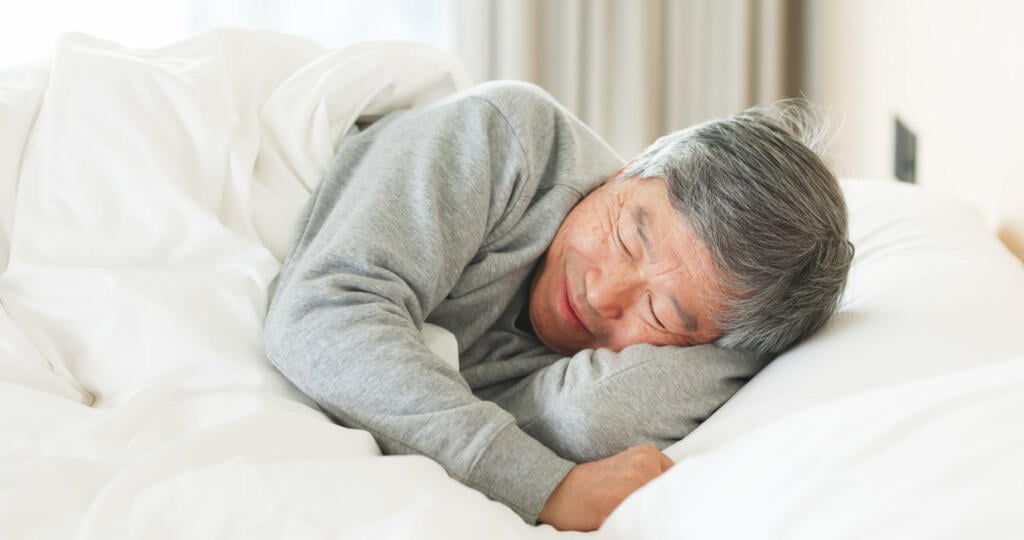
The best bedroom colours for a good night’s sleep
Joy Archer
Follow these quick tips for the best sleep routine
Your sleep schedule is all about your pattern of sleeping and waking. Keeping a consistent routine can help your brain understand when it’s time to be awake and alert, or when it’s time to wind down and sleep – and it’s an important factor for ensuring you get the recommended seven to nine hours a night.
However, a busy daily life can make it challenging to stick to a routine. Sometimes you might not be able to get to bed at 10pm because you’re out socialising (or binge-watching a new series on Netflix), and some mornings you might have to be up and out of the house early.
But if you fix your schedule – by going to sleep and waking up at the same time every day – it could be beneficial to your health.
Your sleep schedule is all about your pattern of sleeping and waking. Keeping a consistent routine can help your brain understand when it’s time to be awake and alert, or when it’s time to wind down and sleep – and it’s an important factor for ensuring you get the recommended seven to nine hours a night.
However, a busy daily life can make it challenging to stick to a routine. Sometimes you might not be able to get to bed at 10pm because you’re out socialising (or binge-watching a new series on Netflix), and some mornings you might have to be up and out of the house early.
But if you fix your schedule – by going to sleep and waking up at the same time every day – it could be beneficial to your health.
 Credit: Shutterstock/Fizkes
Credit: Shutterstock/FizkesImpaired sleep could lead to cognitive decline as you get older, but by sticking to a sleep/wake routine as often as possible, you can help your body get the rest it needs to repair and rebuild – for optimal health.
The NHS recommends adults should aim for seven to nine hours of sleep a night – although, as you get older, it’s common to experience changes in sleep and you might find you get less than that. If you wake up feeling rested and ready for the day, it’s not usually a cause for concern.
“Establishing healthy sleep habits is crucial for maintaining long-term well-being,” says Nuffield Health psychologist, Luke Cousins.
“Implementing a sleep routine doesn’t have to be complicated or expensive – small steps can contribute to better sleep.”
To fix your sleep schedule, Cousins suggests the following:
Banning the use of screens before bedtime can help you sleep better

Gentle stretches or yoga can help before bedtime, but avoid any vigorous exercise

Sleep is sensitive to a lot of things, including external factors. Cousins tells Saga the most common ones to look out for and what we can do to limit the effects on sleep.
The impact of light, whether natural or artificial, plays a crucial role in influencing our circadian rhythm – which is our internal clock – regulating feelings of alertness and tiredness.
However, exposure to light at inappropriate times can disrupt sleep quality by suppressing melatonin production, making it more difficult to fall asleep.
When waking up we want to expose ourselves to natural light during the day, then limit light in the evenings –especially artificial light – before bed.
A sunrise alarm is a good way to wake up naturally

While medications serve to treat specific conditions, some can have adverse effects on sleep quality. Medications such as alpha-blockers, beta-blockers and antidepressants may disrupt sleep.
For example, alpha-blockers have been associated with reduced REM sleep, the final stage of a sleep cycle, when dreaming occurs.
Speak with your doctor for advice if you think your medication is affecting your sleep.
A poorly optimised sleep environment can disrupt sleep by preventing deep and uninterrupted rest. Ideal conditions include a cool, dark and quiet room.
Darkness facilitates the production of melatonin, while a temperature between 60- and 67-degrees Fahrenheit (15-19 degrees Celsius) promotes comfort. Disruptive noises can disturb sleep, but wearing earplugs can be beneficial.
Additional measures such as blackout blinds and an eye mask can block out unwanted light, improving the overall sleep environment. Investing in a cooling mattress or using a fan can help to regulate room temperature, promoting better sleep.
Leave your coffee drinking to the morning if you want to have a good night’s rest

Nicotine can delay the onset of sleep, making it more difficult to fall asleep. It has also been shown to reduce the amount of rapid eye movement (REM) sleep, which is crucial for restorative and dream sleep.
Caffeine stimulates the central nervous system, promoting wakefulness and reducing feelings of fatigue. However, consuming caffeine too close to bedtime can delay the onset of sleep and shorten the total duration of sleep, leading to less sleep time overall. In fact, caffeine has a half-life of roughly six hours, so anything consumed after midday can impact your sleep.
It’s important to note that the sensitivity to nicotine and caffeine can vary among individuals. Some people may be more tolerant to the effects of these substances, while others may be more susceptible to sleep disruptions even with smaller doses.
To optimise sleep quality, it is advisable to limit or avoid nicotine and caffeine intake, especially in the hours leading up to bedtime.
Recent research showed that napping can improve brain health, but you may disrupt your sleep schedule if you’re taking advantage of it too much, says Cousins.
“For most individuals, short naps typically do not negatively impact the quality of night-time sleep. However, if you struggle with insomnia or poor sleep at night, napping may exacerbate these issues.
“It’s advisable to limit naps to just 10 to 20 minutes and ideally not after 2pm. Although this duration may seem short or even insignificant, research suggests that brief naps can enhance alertness without leaving you feeling groggy afterwards.”
Cousins tells Saga that our fascination with sleep has reached such extremes that a new medical term has emerged – orthosomnia.
“This phenomenon refers to an unhealthy fixation on achieving perfect sleep, which ironically can disrupt our ability to fall asleep.
One study examined several individuals who relied on wearable sleep trackers to monitor their sleep patterns.
“Paradoxically, their excessive focus on attaining flawless sleep led them to self-diagnose with insomnia and seek treatment accordingly. These individuals took the data from their sleep trackers too seriously, allowing concerns about achieving ideal sleep to consume their thoughts and hinder their ability to naturally drift off at night.”
A consistent sleep schedule will help with sleep, says Cousins, but he adds: “It’s important to strike a balance and avoid becoming overly preoccupied with sleep-related concerns.”

Written by Rebecca Frew she/her
Published:
Becky Frew has written various articles for newspapers and magazines focusing on fitness, is a qualified run leader, and a certified sleep talker trainer who loves to help advise people how they can nod off easier. When she is not writing or reading about fitness, she is at hot pod yoga, bounce class, training for an ultra-marathon or booking anything with a medal and free food at the end.

Joy Archer

Rebecca Frew

Lou Dearden

Rebecca Frew